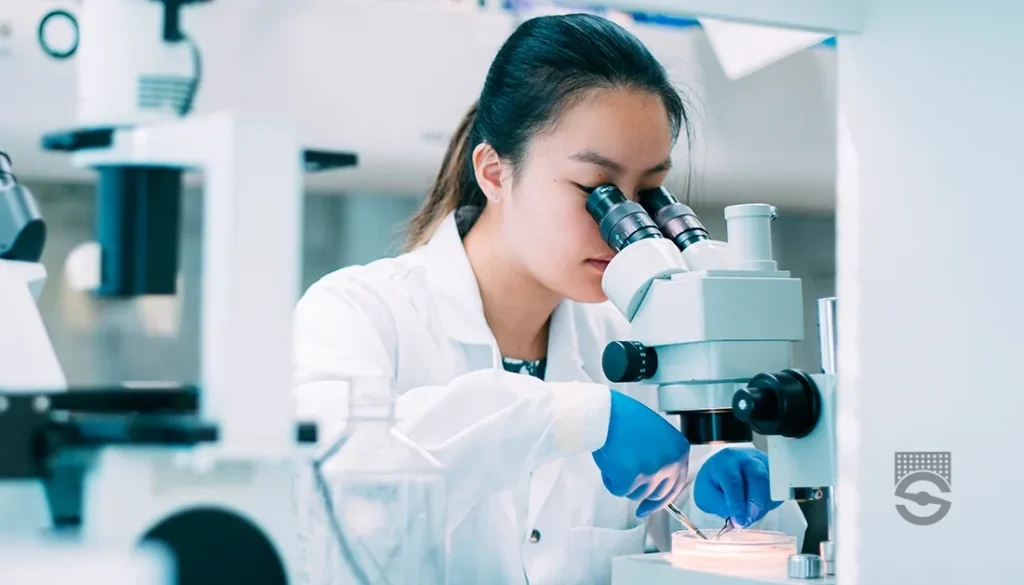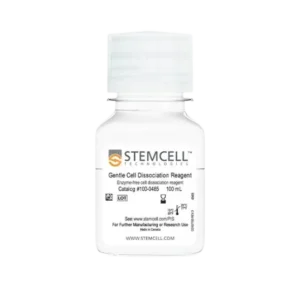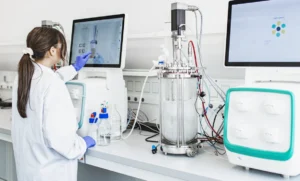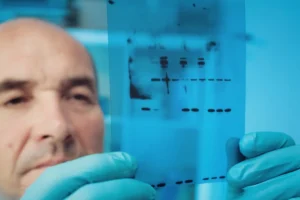The ability to efficiently separate cells from one another and from their surrounding tissue is fundamental to successful cell culture. Whether isolating primary cells from tissues or maintaining delicate pluripotent stem cell colonies, the right Tissue and Cell Culture Dissociation Reagents can significantly affect cell yield, viability, and reproducibility.
Harsh or suboptimal dissociation can damage cell membranes and surface proteins, leading to poor recovery or unreliable experimental data. In contrast, high-quality reagents gently dissociate cells while maintaining integrity, ensuring accurate downstream analysis.
STEMCELL Technologies offers an extensive range of Tissue and Cell Culture Dissociation Reagents, each formulated to maximize cell viability and preserve key phenotypic characteristics. Although Apex Scientific currently lists the Gentle Cell Dissociation Reagent on its website, the entire STEMCELL Technologies portfolio is available on request for laboratories across South Africa.
Why High-Quality Dissociation Reagents Matter
Choosing the right dissociation reagent is more than a procedural step — it’s an investment in experimental reliability. The dissociation process must balance effective separation with the preservation of cell health.
Key Benefits of Quality Dissociation Reagents
- Preserve surface markers: Gentle reagents maintain protein epitopes for accurate flow cytometry and immunostaining.
- Improve viability: Optimized formulations reduce cellular stress and apoptosis during detachment.
- Enhance reproducibility: Chemically defined, animal-free solutions minimize batch variability.
- Reduce contamination risks: Sterile, ready-to-use reagents streamline workflows and minimize handling errors.
These qualities are especially important in sensitive workflows involving stem cells, primary tissues, or organoids. Reagents like DNase I reduce clumping by degrading extracellular DNA, while enzyme-free solutions prevent receptor degradation.
STEMCELL Technologies: Precision in Cell Dissociation
STEMCELL Technologies designs reagents that address the diverse needs of cell and tissue culture. Their portfolio includes both enzymatic and non-enzymatic formulations that deliver high recovery rates and reproducible results.
Advantages of STEMCELL Dissociation Reagents
- Application-tailored formulations: Each product is designed for specific use cases, including stem cell passaging and primary tissue isolation.
- Consistency and quality: Manufactured under strict quality controls, STEMCELL reagents ensure consistent performance across experiments.
- Ease of use: Ready-to-use formulations simplify workflows and reduce technical variability.
- Chemically defined ingredients: Many reagents are animal-origin free, supporting regulatory compliance and reproducibility.
These reagents are ideal for researchers who need reliability and precision in their cell culture workflows — particularly in stem cell, immunology, and tissue engineering research.
Featured Product: Gentle Cell Dissociation Reagent
Among the Tissue and Cell Culture Dissociation Reagents from STEMCELL Technologies, one standout is the Gentle Cell Dissociation Reagent (GCDR) — now available in South Africa through Apex Scientific.
The Gentle Cell Dissociation Reagent is a chemically defined, enzyme-free solution designed for the routine passaging of human embryonic stem (ES) and induced pluripotent stem (iPS) cells.
Key Features and Benefits
- Enzyme-free and gentle: GCDR dissociates cells into aggregates or single cells without proteolytic damage.
- Maintains pluripotency: It preserves essential surface markers and colony morphology across multiple passages.
- High viability: Cells exhibit excellent recovery and attachment post-dissociation.
- Reproducible performance: Manufactured under cGMP conditions, ensuring lot-to-lot consistency.
- Versatile application: Suitable for detaching human pluripotent stem cells, organoids, and epithelial cell layers.
By replacing harsh enzymatic reagents like trypsin, GCDR minimizes cell stress and improves overall culture health. Researchers using GCDR consistently report higher viability rates and reproducible outcomes in both manual and automated workflows.
Applications of Gentle Dissociation in Research
The Gentle Cell Dissociation Reagent supports a wide range of applications in tissue and cell culture.
1. Human Pluripotent Stem Cell Maintenance
The reagent allows routine passaging of human ES and iPS cells while preserving pluripotency markers such as OCT4 and NANOG. It also reduces spontaneous differentiation, enabling consistent colony morphology and expansion.
2. Organoid Handling and Transfer
Researchers can use GCDR to gently dissociate organoid domes and epithelial structures for reseeding or analysis. Because it avoids enzymatic cleavage, organoid viability and structure remain intact.
3. Primary Cell Culture
GCDR’s gentle mechanism helps preserve cell surface proteins critical for downstream assays, including immunostaining, flow cytometry, and cell sorting. It is compatible with multiple extracellular matrix coatings, including Matrigel® and vitronectin-based substrates.
4. Transition to Automated Systems
The reagent’s reproducibility and room-temperature operation make it ideal for integration into automated and large-scale culture systems.
Together, these benefits make GCDR an indispensable reagent for researchers requiring both precision and gentleness in cell culture workflows.
Comparing Enzymatic and Enzyme-Free Dissociation
Understanding the difference between enzymatic and enzyme-free reagents helps researchers choose the right product for their specific applications.
| Type | Advantages | Applications |
| Enzymatic (e.g., trypsin, collagenase, Accutase) | Rapid, complete dissociation; effective on dense tissues | Primary cell isolation, tissue digestion |
| Enzyme-free (e.g., Gentle Cell Dissociation Reagent, ReLeSR™) | Preserves surface markers; minimal damage; consistent results | Pluripotent stem cells, organoids, sensitive lines |
While enzymatic solutions remain useful for specific tissue types, enzyme-free formulations like GCDR are preferred for sensitive cultures where maintaining cell integrity is essential.
Factors to Consider When Choosing a Dissociation Reagent
When selecting a reagent, researchers should evaluate several key factors to ensure compatibility with their workflow:
- Cell type and sensitivity: Delicate cells, such as iPSCs and organoids, benefit from enzyme-free options.
- Downstream analysis: Preserve surface proteins for immunophenotyping and sorting by using gentle formulations.
- Culture system: Substrate coatings and culture surfaces influence dissociation efficiency.
- Scalability: For large-scale or automated operations, enzyme-free reagents offer greater consistency.
Following optimized STEMCELL protocols for incubation time and temperature ensures reliable results while minimizing cell loss.
Accessing STEMCELL Technologies Reagents Through Apex Scientific
Apex Scientific is proud to supply STEMCELL Technologies products across South Africa. While the Gentle Cell Dissociation Reagent is currently available directly on our website, laboratories can request any product from the full STEMCELL Technologies dissociation range.
To explore additional options, visit the STEMCELL Technologies Dissociation Reagents category. Apex Scientific can source and deliver any reagent from this catalog, ensuring researchers have access to the latest tools for cell culture and tissue processing.
Conclusion
High-quality Tissue and Cell Culture Dissociation Reagents are essential for efficient and reproducible cell isolation. STEMCELL Technologies provides an advanced portfolio of dissociation solutions that support every stage of cell culture, from gentle stem cell passaging to complete tissue digestion.
Apex Scientific supplies the Gentle Cell Dissociation Reagent locally and can provide the full STEMCELL Technologies range upon request, ensuring South African researchers have access to world-class cell culture solutions.
To learn more or to request additional reagents, contact Apex Scientific or visit the STEMCELL Technologies Dissociation Reagents category page.




